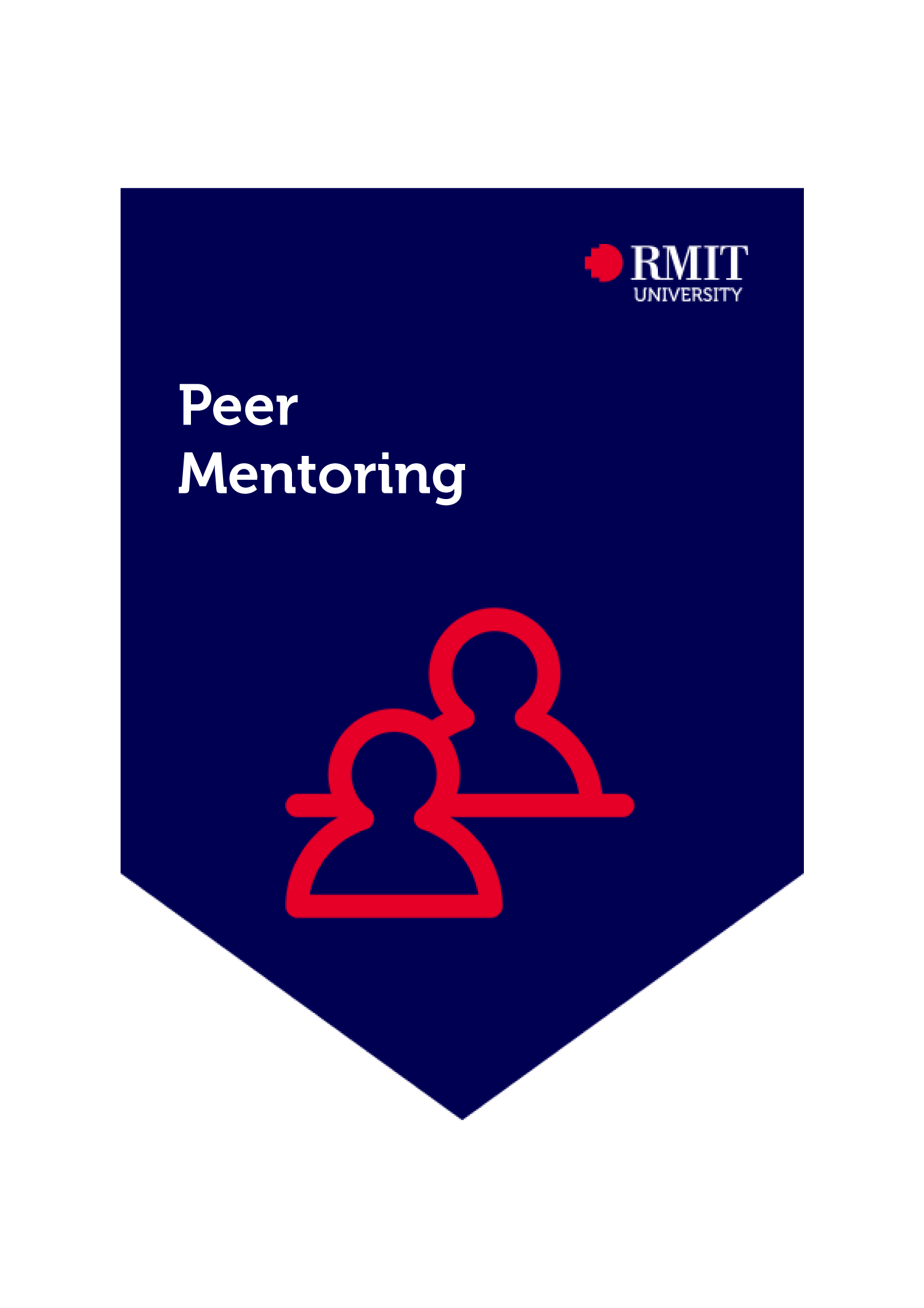Overview
*This credential is only available to current RMIT students
Peer Mentoring has long-term benefits that extend beyond the higher education sphere. Future employees who have engaged in peer mentoring activity are more self-directed, culturally aware and have developed stronger communication and problem-solving skills.
Effective peer-to-peer mentoring techniques promote valuable "soft skills" that many employers are seeking in future employees.
Skills and learning outcomes
- Understand the key elements of effective mentoring
- Apply methods of reflection to real world mentoring scenarios
- Demonstrate effective relationship management techniques in a mentoring context
- Explain best practices of communication, including active listening, feedback, style adaptation and skill articulation
- Understand how to interact with diverse groups
- Demonstrate ethical decision making in a mentor relationship
Content
Module 1: Mentoring Overview
Module 2: Finding the right Mentoring opportunity
Module 3: Preparing for your Mentoring activity
Module 4: Being a Mentor
Module 5: What's next?






